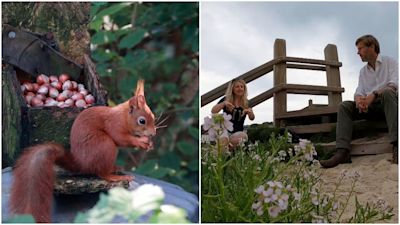Wildlife making the most of Isles of Scilly due to lack of locals and tourists during coronavirus pandemic

Video report by ITV News West Country Correspondent Rupert Evelyn
Three months of coronavirus lockdown has been a long time but it has also shown how little time it takes for nature to adapt to a dramatic shift in human behaviour.
In the Isles of Scilly, the change has been striking. As one resident put it: "We took the bums and bikinis off the beach and plants began to grow."
Porthcressa beach on the main island of St Mary’s now has a field of Sea Rocket and with it comes natural biodiversity.
Caterpillars, bees and other insects have moved in because people moved out.
For many of the 2,000 residents it is the first time in living memory they’ve seen the plants grow and blossom in the sand.
At the world famous Abbey Gardens on Tresco, the red squirrels have noticed the absence of visitors and have become more adventurous around the site.
A small but significant example of how quickly animals adapt. On the uninhabited islands birds have been spotted nesting alongside the untrodden and uncut paths.
The striking change in human activity due to the coronavirus pandemic and the wildlife reaction that followed has been dubbed the Anthropause by scientists who are studying it.
Anthropause has been coined during the pandemic to describe the lack of human activity that has allowed wildlife to claim or reclaim areas that people normally occupy.
Amid the gloom of Covid-19, there are a few unforeseen opportunities and decisions to be made on whether these changes to the world around us are worthy only of observation or preservation.